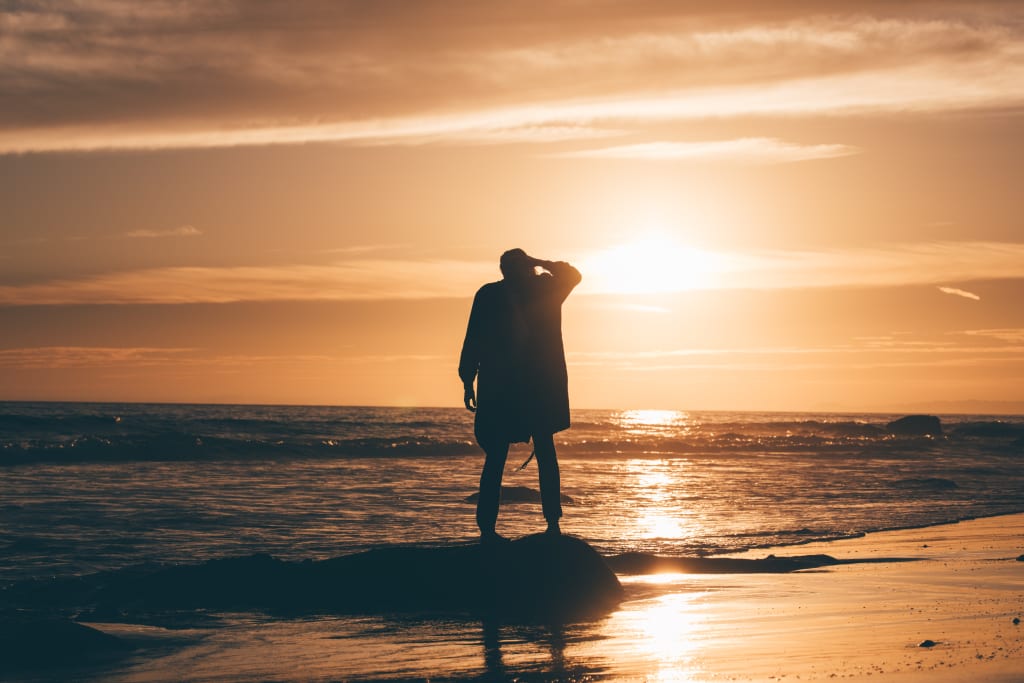Losing My Religion
A condensed account of the sand castle of my faith being washed out to sea.

Hi, I'm Nathan, and I'm a recovering evangelical. It's been 12 years since my last quiet time.
My childhood was spent in the church. Son of a Baptist minister. At church every Sunday morning, Sunday night, and Wednesday evening. Saved at six, baptized at seven, rededicated by the last night of summer camp in 8th grade. I ate the crackers, drank the grape juice, and knew the books of the Old Testament, New Testament, and page numbers for the greatest hits in the hymnal by memory.
By high school, my conviction deepened. I leveled up my piety. Leadership roles in youth group. Rocked a WWJD bracelet. Prominent member of the Fellowship of Christian Athletes at school. Prayed at the school flagpole once a year.
In college, the journey continued. Prayer groups, small groups, accountability groups, all the groups. Threw away all my secular music. I was a youth minister at two area churches. I was convinced this was my calling.
After college, I enrolled in seminary. I learned the Hebrew alphabet. I studied hermeneutics. I traced the historical line that ran from the Protestant Reformation to modern day American evangelicalism. My masters program culminated in two years overseas on the mission field.
All that to say I was in the club. Card-carrying member. I wasn't a poser or an Easter-Christmas Christian. I was a devoted follower of Jesus.
Running concurrently with all of that, however, was a nagging doubt. Dark nights of the soul. Questions. Guilt for having those questions. Then more questions. I couldn't shake the feeling that I was ironically building my house on sand.
As I got older, my faith evolved to survive my doubt. I moved from reading Max Lucado and Philip Yancey to Brian McLaren and Donald Miller. I grew less and less enchanted with the institution of the church. I had a progressively harder time reconciling my personal beliefs with the theology I was taught.
In retrospect, I can pinpoint one issue that was the turning point for me and led to the deconstruction of the foundation of my belief system. It was the evangelical response to homosexuality.
My personal belief that a man or woman should be able to love whomever they choose was in direct contradiction to what I'd been taught the Bible said. I found myself in the middle of a battle between my head and my heart. I felt that I had only one option: To prove that God didn't really condemn homosexuality. That way, I could stay true to myself and my faith.
I began reading books and articles that addressed every Biblical passage that dealt with same-sex relationships. I spent months searching for the key that would unlock the permission to believe what I wanted to be true. I searched for loopholes and workarounds that would allow me mesh together my feelings and my doctrine.
The answer was historical context. If I researched what was happening when these words were recorded, I could figure out the intent for which they were written. "In the New Testament," I remember excitedly telling my wife over dinner, "Paul wasn't talking about monogamous relationships. See? He didn't have an understanding of sexual orientation. He was merely condemning pagan rituals!" This was exactly what I'd been seeking. A new way to interpret scripture that made it more congruent with my increasingly progressive worldview.
This discovery, however, would prove fatal to my conservative faith. The faith that was built on sound Bible-based teaching. God's word was inerrant and infallible. It was to be taken literally and directly applied to our lives. But as I pulled back and took a wider view, I realized that we were picking and choosing what we interpreted literally and what we chalked up to history.
Paul told Timothy to drink wine for stomach aches. As a Baptist, wine was off-limits, so clearly Paul wrote that before we had Pepto Bismol. That part wasn't literal.
On the other hand, when he told the women in Corinth to be quiet in church, he wasn't addressing a specific situation. He was saying that women can't hold leadership positions in church then and now (unless they want to be children's ministers which was apparently implicit in Paul's words). That part was literal and intended to be applied to the present.
I kept pulling at that thread. The notion that parts of the Bible are to be taken literally and some parts aren't, and it's up to us to decide which is which. Eventually, the sweater fell apart. The sand castle crumbled. The giant inflatable bounce house of my faith was deflated. It would never recover.
The subsequent years were spent trying to construct a new belief system. I found more liberal, progressive churches with more palatable theological views. The Bible was literature. Lessons contained in stories. God didn't make the world in seven literal days with two people. The Garden of Eden was metaphorical. That made more sense to me. But basing my life on these fables increasingly didn't.
My head and my heart eventually aligned in agreement. Christianity wasn't for me. Since it had been the cornerstone of my life for three decades, it wasn't easy to walk away. It was, however, the right thing for me to do.
There wasn't one final moment when I made it official. No notarized letter or an update to my Facebook profile. It just faded away little by little. I read fewer articles about issues relevant to faith. Listened to fewer podcasts about belief. Checked out fewer Bart Ehrman books about the interpretation of sacred texts.
It's been years. Currently, I'm somewhere on the spectrum between atheist and agnostic. I no longer feel the need to define my position with a specific label.
I have a faded tattoo on my left ankle of a Jesus fish. A remnant of a past life. A reminder of who I was and how I've grown. The numbers 5:6 are inked inside it. It's a verse in the New Testament book Galatians. "The only thing that counts is faith expressing itself through love." Actually that, I still believe.






Comments
There are no comments for this story
Be the first to respond and start the conversation.